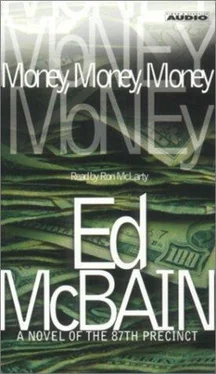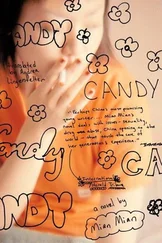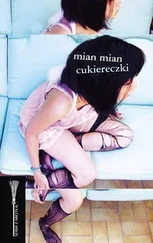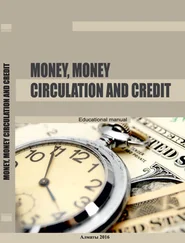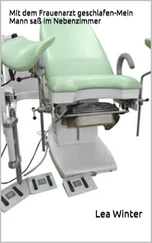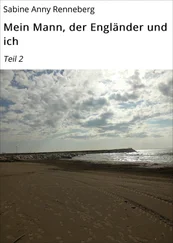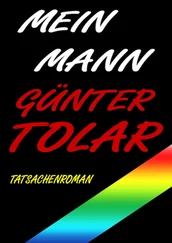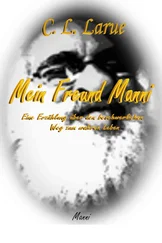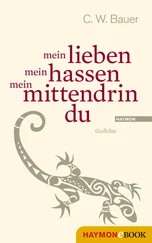Ed Mcbain - Money, Money, Money
Здесь есть возможность читать онлайн «Ed Mcbain - Money, Money, Money» весь текст электронной книги совершенно бесплатно (целиком полную версию без сокращений). В некоторых случаях можно слушать аудио, скачать через торрент в формате fb2 и присутствует краткое содержание. Жанр: Полицейский детектив, на английском языке. Описание произведения, (предисловие) а так же отзывы посетителей доступны на портале библиотеки ЛибКат.
- Название:Money, Money, Money
- Автор:
- Жанр:
- Год:неизвестен
- ISBN:нет данных
- Рейтинг книги:3 / 5. Голосов: 1
-
Избранное:Добавить в избранное
- Отзывы:
-
Ваша оценка:
- 60
- 1
- 2
- 3
- 4
- 5
Money, Money, Money: краткое содержание, описание и аннотация
Предлагаем к чтению аннотацию, описание, краткое содержание или предисловие (зависит от того, что написал сам автор книги «Money, Money, Money»). Если вы не нашли необходимую информацию о книге — напишите в комментариях, мы постараемся отыскать её.
Money, Money, Money — читать онлайн бесплатно полную книгу (весь текст) целиком
Ниже представлен текст книги, разбитый по страницам. Система сохранения места последней прочитанной страницы, позволяет с удобством читать онлайн бесплатно книгу «Money, Money, Money», без необходимости каждый раз заново искать на чём Вы остановились. Поставьте закладку, и сможете в любой момент перейти на страницу, на которой закончили чтение.
Интервал:
Закладка:
CARELLA:
You know who did this to you? Who, Tigo? Can you tell me?
TIGO:
Mother.
CARELLA:
Yourmother shot …?
TIGO:
Nettie.
CARELLA:
Is that your mother’s name?
TIGO:
Diana.
CARELLA:
I don’t under …
There was more shooting.
Heavy breathing.
OLLIE:
That’s two, Steve.
“Who the fuck is Mother?” Ollie asked.
FROM WHERE SVI COHEN stood center stage, he could see the vast enclosing arms of Clarendon Hall, from the orchestra level soaring upward to the first and second tiers, and the dress circle, and the front and rear balconies. A giant of a man himself, he felt dwarfed by the golden sweep of the most prestigious concert hall in the United States. It was here that Jascha Heifetz, a seventeen-year-old Russian violinist, made his explosive American debut in 1917. It was here—not a decade later—that a ten-year-old prodigy named Yehudi Menuhin stunned the world of classical music with a violin style that combined the elegance of Kreisler, the sonority of Elman, and the technique of Heifetz himself. Here, too, on this very stage, the great Russian pianist Svetlana Dyalovich had made her American debut. Svi stood staring out at the red-carpeted space, overwhelmed.
“So how does it look to you?” Arthur Rankin asked, beaming.
Rankin was the Philharmonic’s conductor, a man in his sixties, a man who’d been playing violin since he was four years old and conducting since he was thirty, but in the presence of this thirty-seven-year-old genius from Tel Aviv, he was virtually awe-stricken.
“Wait till you hear the sound,” he said.
“I can imagine,” Svi said.
The orchestra was beginning to tune up.
Tonight’s program would start with “La Gazza Ladra”—the “Thieving Magpie” overture from Rossini’sThe Barber of Seville. They would then play Mozart’s no. 40 in G Minor to conclude the first half of the evening. There would be a twelve-minute intermission, and then Svi Cohen would take the stage. The orchestra had been rehearsing all of the pieces for the past week now, but this was the first time they would be playing the Mendelssohn E Minor with the Israeli violinist.
Rankin tapped his baton for silence.
“Gentlemen?” he said. “May I introduce our honored guest?”
THE PLAN was a simple one.
They had been trained to believe that all good plans were simple ones.
Part of the seed money had been spent for false identity papers created for them by a master forger who’d been trained in Bucharest and who now lived in a small town upstate, where he sold antiques as a sideline. Passports, green cards, driver’s licenses, social security cards, credit cards—all that anyone might need to move freely around the United States, or indeed around the world. From the stock of a Cadillac dealership in the state across the river, Nikmaddu—using the assumed name on his new driver’s license—had purchased outright a black DeVille sedan. The car would be used in the attack tonight, and then driven to Florida, where it would be disposed of before all four men parted company. Akbar, Mahmoud, and Jassim would board separate flights to Zurich, Paris, and Frankfurt, and would then disperse to the far corners of the Arab world. Nikmaddu would leave first for Chicago, and then San Francisco, and finally Los Angeles. The attack here in this city would have put only a small dent in the cash he’d carried from home. Activities elsewhere in the United States required money, too. Money was what made the world of terrorism—or, as he preferred to call it, liberation—go round. Money was both the engine and the fuel.
At seven-forty-five tonight Akbar, wearing a chauffeur’s uniform, would drive the Cadillac—
They called this luxurious car a Caddy, the Americans. They also used this word to describe the menial who carried a golfer’s clubs. A strange country.
He would drive the Caddy, then, to the front door of Clarendon Hall. Jassim, barbered and bathed and manicured and groomed, well-tailored in a black business suit, carrying a man’s handbag purchased at Gucci on Hall Avenue, would present his ticket and enter the hall. If he was asked to open the bag, which was highly unlikely, they would find in it only a package of cigarettes, a gold and enamel cigarette lighter also purchased at Gucci, a Coach leather wallet, and a paperback copy ofCatcher in the Rye. It was not until later that Jassim would re-enter the hall carrying the armed bomb.
“Where will you be during the first part of the concert?” Nikmaddu asked.
Akbar, who had assembled the bomb, and who would be responsible for arming it before Jassim went back in, said, “I’ll be parked just across the street.”
“Wouldn’t it be better to park directly outside?”
“It is forbidden to park in front of the hall. Or, in fact, anywhere on that side of the street. Most of the limo drivers park across the way or around the corner. Jassim knows where I’ll be. We’ve run this through many times already.”
Mahmoud looked at him skeptically.
“Half the taxicab and limousine drivers in this city are from the Middle East,” Akbar said. “I will not arouse any suspicion. I will sit behind the wheel quietly, minding my own business, smoking a cigarette and waiting for my fat Jew employer to come out of the hall. Jassim and I will find each other, don’t worry.”
“You’ve got only twelve minutes to find each other,” Mahmoud reminded them.
“I’ll be watching for him to come out,” Akbar said. “We’ll have more than enough time, believe me.”
“What time does the concert start?” Nikmaddu asked.
“It’s supposed to begin at eight. Experience has taught me that it always starts some five or ten minutes later.”
“And the intermission is when?”
“The Rossini overture can take anywhere between nine and eleven minutes and the Mozart symphony between twenty-five and thirty-five. On average, I would expect the first half of the concert to run some forty minutes. The intermission should start at around nine or a little bit after.”
“Can you not be more precise?” Nikmaddu asked.
“I’m sorry,” Akbar said. “Western music is not always precise. In any case, I’ll arm the bomb when Jassim returns to the limousine. I’ll place it in his bag, and he’ll go back into the hall. You’d be surprised how long a time twelve minutes is.”
“I hope so. I wouldn’t want the bomb to explode while he’s still outside on the sidewalk.”
“No, that can’t possibly happen. The intermission will end, let’s say, at nine-fifteen. They will allow at most five minutes for everyone to get settled again. Let’s say the Jew comes on stage at nine-twenty. The bomb will be set to explode at nine-thirty. Jassim will be long gone by then.”
“Inshallah,”Mahmoud said.
“Inshallah,”the others repeated.
The men fell silent.
“The weather is supposed to be clear and cold tonight,” Nikmaddu said at last.
“Good,” Mahmoud said. “Then our drive to Florida should be trouble free.”
“Someday, I would love to spend some time in Florida,” Akbar said, almost wistfully.
THE BLONDE Ollie had shot in the back was in a room on the sixth floor of Hoch Memorial. A male police officer was stationed outside the door to the room. The clock on the wall behind him read twelve-fortyP.M. The blonde had plastic tubes trailing out of her nose. The blonde had lines running into her arm. Neither Carella nor Ollie felt the slightest bit of pity or compassion for her on this cold December afternoon at the end of the year.
“Want to tell us who you are?” Carella asked.
“I don’t have to tell you anything,” she said. “You’re making a grave mistake here.”
Читать дальшеИнтервал:
Закладка:
Похожие книги на «Money, Money, Money»
Представляем Вашему вниманию похожие книги на «Money, Money, Money» списком для выбора. Мы отобрали схожую по названию и смыслу литературу в надежде предоставить читателям больше вариантов отыскать новые, интересные, ещё непрочитанные произведения.
Обсуждение, отзывы о книге «Money, Money, Money» и просто собственные мнения читателей. Оставьте ваши комментарии, напишите, что Вы думаете о произведении, его смысле или главных героях. Укажите что конкретно понравилось, а что нет, и почему Вы так считаете.
